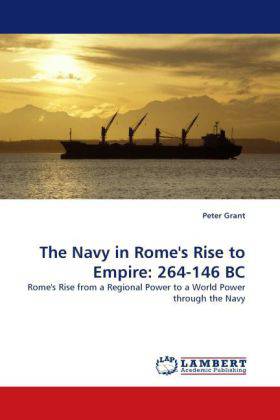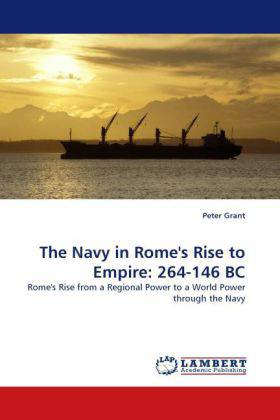
- Afhalen na 1 uur in een winkel met voorraad
- Gratis thuislevering in België vanaf € 30
- Ruim aanbod met 7 miljoen producten
- Afhalen na 1 uur in een winkel met voorraad
- Gratis thuislevering in België vanaf € 30
- Ruim aanbod met 7 miljoen producten
Zoeken
Omschrijving
That Rome created an Empire even when it was a Republic is not disputed. However, most scholars tend to emphasize the role played by the Legions of Rome in that achievement and ignore the Navy. This book argues that but for the existence of a Navy in the armed forces of Rome she would have remained merely a hegemon of Italy whose influence and dominion would not have traversed the seas. The Roman navy from its inception was a military machine instituted to challenge Carthage, create an empire and rule the world. Using Mahan's elements of sea power and arguing from the premise that Rome was not a quietist nor a pacifist state, but an imperialistic and militaristic state with an expansionist agenda, the book looks at how Rome, during 264-146 BC, employed her navy to rise to empire by pacifying the major powers of the Mediterranean world. The fresh perspectives in the book should make it an interesting read for University students and Lecturers, as well as the general reader who is interested in military history and the Classical world.
Specificaties
Betrokkenen
- Auteur(s):
- Uitgeverij:
Inhoud
- Aantal bladzijden:
- 236
- Taal:
- Engels
Eigenschappen
- Productcode (EAN):
- 9783843354592
- Verschijningsdatum:
- 13/10/2010
- Uitvoering:
- Paperback
- Formaat:
- Trade paperback (VS)
- Afmetingen:
- 152 mm x 229 mm
- Gewicht:
- 349 g

Alleen bij Standaard Boekhandel
+ 155 punten op je klantenkaart van Standaard Boekhandel
Beoordelingen
We publiceren alleen reviews die voldoen aan de voorwaarden voor reviews. Bekijk onze voorwaarden voor reviews.











